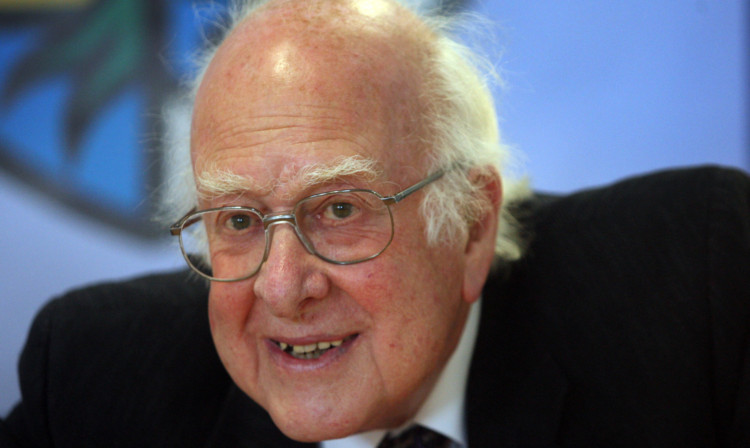Professor Peter Higgs, the scientist who gave his name to the Higgs boson particle, says he is “overwhelmed” to have won the Nobel Prize in Physics.
He shares the prize with Francois Englert of Belgium for their work in the “theoretical discovery of a mechanism that contributes to our understanding of the origin of mass of subatomic particles”.
The mechanism predicts a particle – the Higgs boson – which was discovered by a team from the European nuclear research facility (Cern) in Geneva, Switzerland, last year.
In a statement released through Edinburgh University, where Higgs, 84, is an emeritus professor, he said: “I am overwhelmed to receive this award and thank the Royal Swedish Academy.
“I would also like to congratulate all those who have contributed to the discovery of this new particle and to thank my family, friends and colleagues for their support. I hope this recognition of fundamental science will help raise awareness of the value of blue-sky research.”
He hit upon the concept of a “God particle” during a walk in the Cairngorms national park in Scotland in 1964 when he started to consider the existence of a particle that gives matter its mass.
He wrote two scientific papers on his theory and was eventually published in the Physical Review Letters journal, sparking a 40-year hunt for the Higgs boson.
The announcement was made at a Royal Swedish Academy of Sciences ceremony in Stockholm.
The awards were set up by businessman Alfred Nobel and were first given out in 1901 to honor achievements in science, literature and peace.
Professor Sir Timothy O’Shea, principal of the University of Edinburgh, said: “We are delighted at the news of this Nobel Prize award and congratulate Professor Peter Higgs on his achievement.
“The discovery of the Higgs particle will underpin the next generation of physics research, and this accolade is worthy recognition of its significance. Professor Higgs’ work will continue to inspire scientists at Edinburgh and beyond.”
Sir John Arbuthnott, president of the Royal Society of Edinburgh, Scotland’s National Academy, said: “Peter Higgs is one of the great modern scientific minds.
“I am delighted Peter has been awarded a Nobel Prize for physics. This well-deserved honour is the ultimate recognition of the extraordinary contribution he has made to the understanding of the fundamental nature of matter”.
“Peter maintains the Scottish tradition of inspired excellence in science and follows in the footsteps of outstanding RSE Fellows like James Clerk Maxwell and Lord Kelvin, whose work profoundly affect our lives today.
“Given the intense world wide competition for the brightest minds and the link between that and future wealth creation, the ability of Scotland to continue to attract and retain the finest minds is now even more important.”
“The Fellows of the Royal Society of Edinburgh extend their heartfelt congratulations to one of our own, who has rightly received the highest of scientific accolades.”
In March, Professor Higgs was given the Edinburgh Medal at a ceremony in the Scottish capital to recognise his significant contributions to the field of science and technology. Previous recipients have included three Nobel Prize winners.
He was also made a Companion of Honour in the New Year Honours list and the Higgs Prize was set up by the Scottish Government to recognise school pupils who excel in physics.
